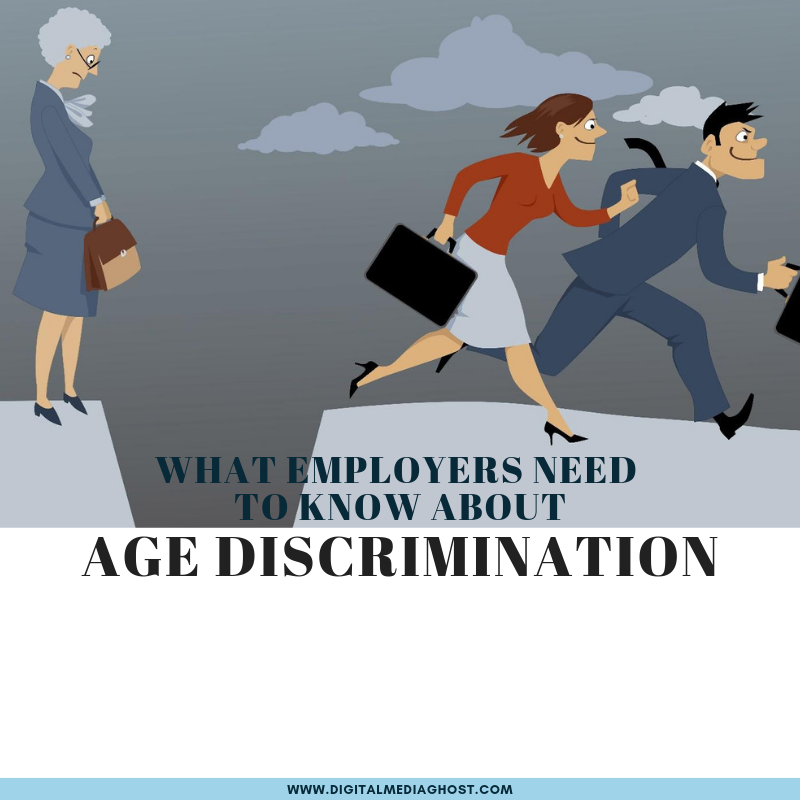Although this act does not protect workers under 40, some states have additional legislation to protect younger workers. While most age discrimination in the workplace is directed at older generations, it is important to recognize that age discrimination can happen at any point in an employee’s working career. While many employers believe they do not discriminate against older employees, the statistics disagree. A recent AARP study found nearly two out of three workers age 45 and older have seen or experienced age discrimination at their workplace. Among those who reported age bias, 91 percent said they believe age discrimination is common in the workplace. A report by the U.S. Equal Employment Opportunity Commission found six out of 10 older workers witnessed age discrimination at work. While age discrimination occurs throughout all sectors and industries, the average age of employees continues to plummet in Silicon Valley, where the average employee age is 5-10 years below the national average. Major technology companies including Intel, Google, and IBM have faced age discrimination lawsuits and federal investigations. Research has shown age discrimination in Silicon Valley is a result of hiring practices and culture. Ageism isn't just a problem for older candidates and employees, it has far-reaching implications for employers. Ageism is a result of many different cultural phenomena’s and is primarily prevalent in Western cultures. The term ageism was coined just 50 years ago and has since received attention from the media, government, and employers. One of these cultural phenomena’s is the technological boom, a reason ageism is so common in Silicon Valley. Many have come to accept the belief that it is the young who innovate and as a result, older generations are pushed out. Additionally, older employees often require higher salaries, pensions, and additional benefits, due to having acquired more job experience. Indicators of Possible Age Discrimination in the Workplace Age discrimination is often difficult to prove as it can come in several forms. Here are some indicators to look for:
Benefits of Hiring Older Employees
While some employers think of older employees as a problem they need to deal with, other employers find older employees bring many benefits to their organization including:
How Employers Can Prevent Age Discrimination Taking a stand against age discrimination is an important policy to incorporate into your workplace. Aside from the legal implications employers may face if they do not abide by age discrimination laws, allowing such practices in a company’s culture can lead to a decrease in employee morale, bad press, negative job reviews, and can ultimately damage or dissolve a company. Implementing anti-discrimination policies clearly stating how you hire employees, how you train them and how you promote them, regardless of age or other factors can help to mitigate potential problems. It’s important to establish a process for employees to report age discrimination and be transparent about how accusations of discrimination will be investigated. Create a streamlined hiring process to avoid any confusion about which employees are brought on and why. Hiring experienced and professional human resource managers to acknowledge and address existing issues amongst employees can help prevent future problems. It is also beneficial to provide training in new technologies and to hold regular seminars or meetings addressing the importance of equality in the workplace.
Conclusion
Age discrimination continues to persist despite federal and state regulations specifically protecting against this form of illegal discrimination. Employers should take a stand against age discrimination by honestly assessing both workplace culture and employment practices and implementing any necessary policy changes. Eliminating age discrimination can help to attract, motivate, and retain employees and enhances your reputation as an employer. Everyone deserves the right to have an equal opportunity to work and develop their skills regardless of age.
Author bio:
Noelle Fauver is a contributing editor for 365 Business. She has a B.A. in Communication Studies from California State University, Northridge. She has experience in marketing, finance, and small business management. |
Categories
All
Archives
November 2023
|
|
Locations:
New Orleans, LA Nashville, TN |
|
Digital Media Ghost @2020
|





 RSS Feed
RSS Feed
